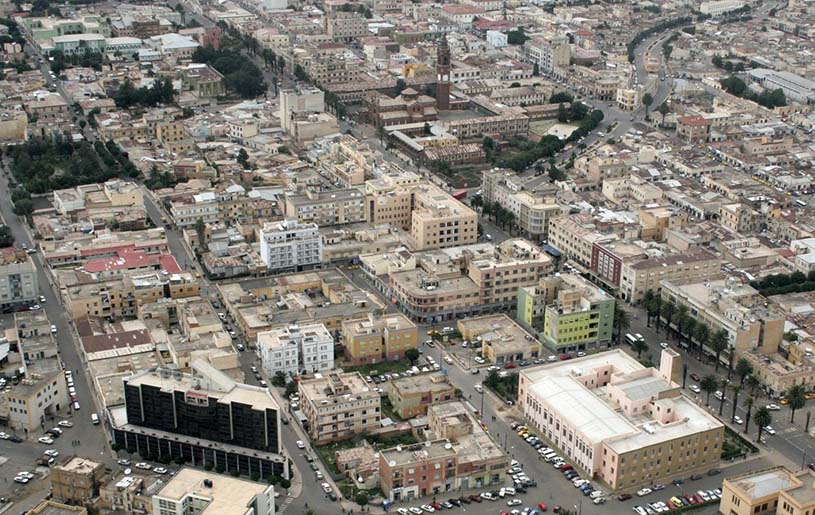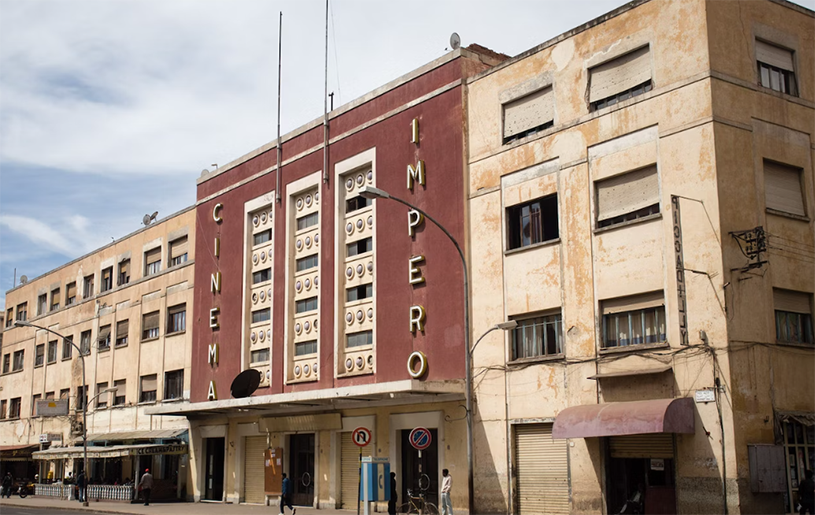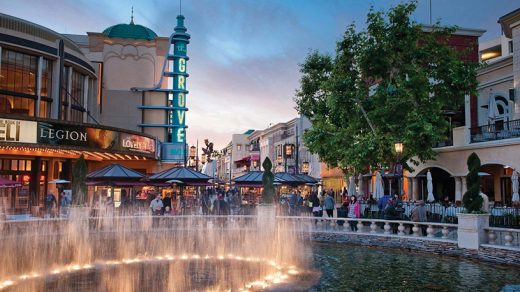Asmara, the capital city of Eritrea, is a hidden gem in East Africa, often overlooked by travelers exploring the continent. This charming city is a unique blend of history, culture, and architecture that has remained relatively untouched by modernization.
A Walk Through Time
Colonial Influence
Asmara’s history is deeply intertwined with the legacy of Italian colonial rule. From 1890 to 1941, Eritrea was under Italian colonial administration, and the architecture and culture of that era still permeate the city. Strolling through Asmara’s streets, you’ll encounter stunning examples of Art Deco and Modernist architecture that transport you back in time.
A UNESCO World Heritage Site
In 2017, Asmara’s unique architectural heritage was recognized by UNESCO, leading to its designation as a World Heritage Site. The city’s well-preserved Italian colonial buildings, cinemas, and cafes are a testament to its historical significance.
Cultural Melting Pot

Diversity of Cultures
Eritrea is a country characterized by its rich ethnic diversity, and Asmara is no exception. The city is home to various ethnic groups, including the Tigrinya, Tigre, and Saho people. This diversity has contributed to a vibrant cultural scene, with various languages, traditions, and cuisines coexisting harmoniously.
Art and Music
Asmara boasts a thriving arts and music scene. Local artists and musicians draw inspiration from Eritrea’s unique cultural blend, resulting in a rich tapestry of creative expression. You can explore art galleries and enjoy live performances at the city’s theaters and clubs.
Architectural Marvels
Fiat Tagliero Building
One of Asmara’s most iconic landmarks is the Fiat Tagliero Building. Designed by architect Giuseppe Pettazzi, this futuristic structure resembles an airplane poised for takeoff. It is a testament to the architectural audacity of the Italian colonial period and is a must-visit for architecture enthusiasts.
Cinema Impero
Cinema Impero is another architectural marvel that stands as a symbol of Asmara’s cultural significance. This Art Deco cinema, dating back to the 1930s, has been lovingly restored and still screens films today. It provides a glimpse into the golden age of cinema in Asmara.
Gastronomic Delights

Unique Flavors
Eritrean cuisine is a delightful blend of flavors and textures. In Asmara, you can savor traditional dishes like injera (a sourdough flatbread) served with various stews and grilled meats. The city’s cafes and restaurants also offer Italian-influenced dishes that reflect its colonial history.
Coffee Culture
Coffee holds a special place in Eritrean culture, and enjoying a cup of traditional Eritrean coffee in one of Asmara’s cozy cafes is a must. The coffee ceremony, an integral part of Eritrean hospitality, offers a glimpse into the city’s warm and welcoming atmosphere.
Hidden Treasures
Massawa
A visit to Asmara wouldn’t be complete without exploring the nearby coastal city of Massawa. Known for its stunning Red Sea coastline and historical architecture, Massawa is a short drive from Asmara and offers a unique contrast to the capital’s mountainous terrain.
Dahlak Archipelago
For those seeking adventure, the Dahlak Archipelago, consisting of over 200 islands, is a paradise for divers and snorkelers. It’s an easy trip from Asmara, offering a chance to explore the underwater wonders of the Red Sea.
Asmara, often overshadowed by more prominent African destinations, is a true urban treasure waiting to be discovered. Its historical architecture, cultural diversity, and unique charm make it a destination like no other in East Africa. Whether you’re captivated by its colonial past, drawn to its cultural tapestry, or simply seeking an off-the-beaten-path adventure, Asmara is a city that will leave an indelible mark on your heart and memory.


